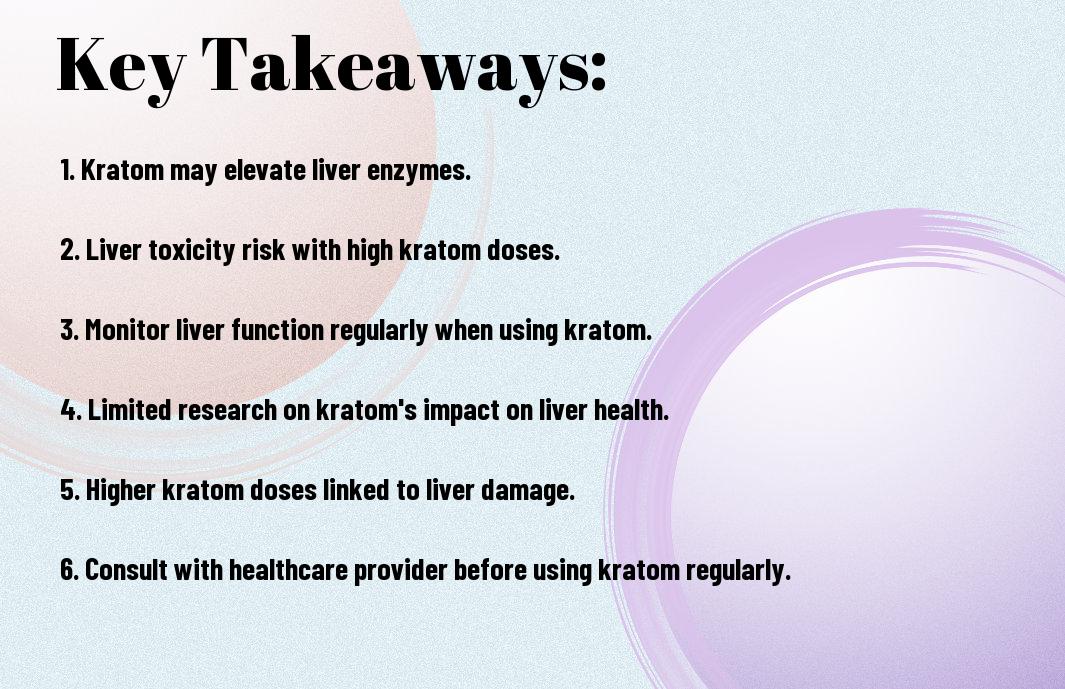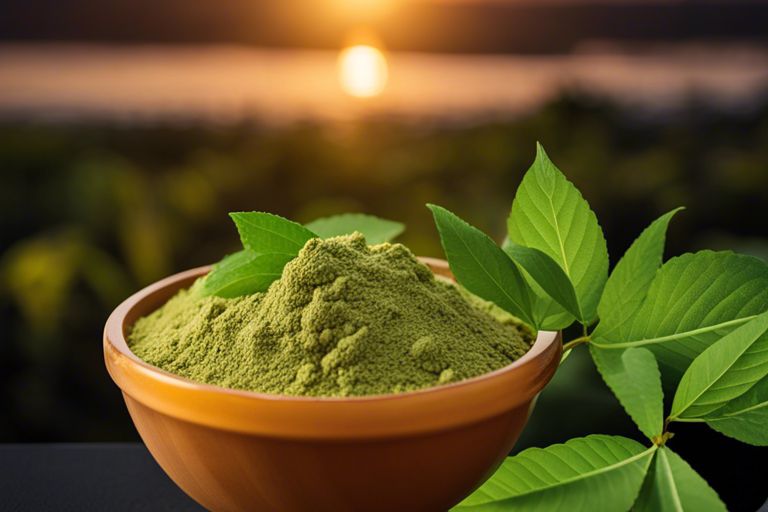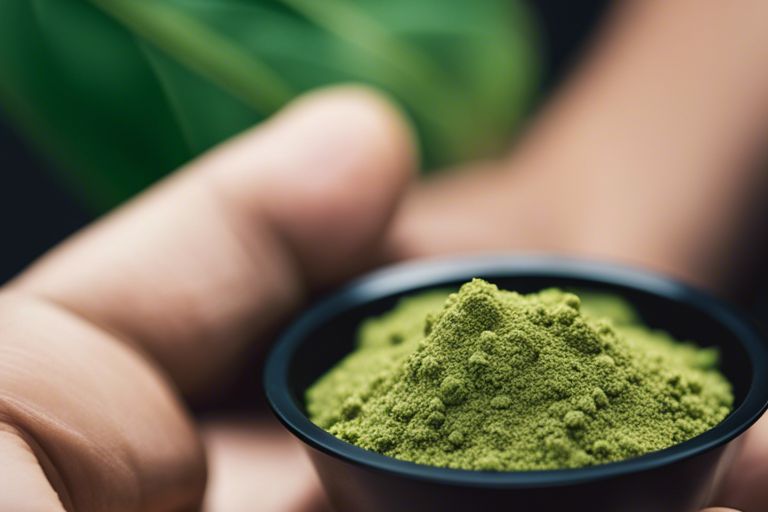Deprecated: mb_convert_encoding(): Handling HTML entities via mbstring is deprecated; use htmlspecialchars, htmlentities, or mb_encode_numericentity/mb_decode_numericentity instead in /home/users/kratomfiles/www/kratomfiles.com/wp-content/plugins/quick-adsense-reloaded/includes/template-functions.php on line 3552
With the increasing popularity of kratom, it’s important to understand its potential effects on your liver enzymes. Your liver plays a crucial role in metabolizing substances like kratom, and changes in liver enzymes can indicate how your body is processing this herb. In this informative post, we will probe into the relationship between kratom and liver enzymes, shedding light on what you need to know to make informed decisions about your health and well-being.


What is Kratom?
For centuries, people have been using kratom, a tropical tree native to Southeast Asia, for its medicinal and recreational properties. Kratom leaves contain compounds that can have psychotropic (mind-altering) effects, making it a popular choice for those looking to enhance their mood, relieve pain, or boost their energy levels.
Origins and History
History tells us that kratom has been used for centuries in Southeast Asian countries like Thailand, Malaysia, and Indonesia. It was traditionally consumed by chewing the leaves or brewing them into a tea to take advantage of its stimulating effects. Kratom was also used as a natural remedy for various ailments, including chronic pain, diarrhea, and even as a treatment for opium addiction.
Chemical Composition
What makes kratom unique are the active compounds found in its leaves. The two main alkaloids responsible for kratom’s effects are mitragynine and 7-hydroxymitragynine. These alkaloids interact with receptors in the brain to produce stimulant and opioid-like effects, which can vary depending on the strain and dosage of kratom consumed. This complex chemical composition is what makes kratom a subject of interest for researchers and individuals seeking alternative therapies.
Liver Enzymes 101
Definition and Function
Function: Your liver is a vital organ responsible for many functions in your body, including detoxification, protein synthesis, and the production of biochemicals necessary for digestion. Liver enzymes are proteins that help speed up chemical reactions in the liver to maintain these important functions. They play a crucial role in breaking down toxins, drugs, and other substances that enter your body.
Types of Liver Enzymes
Function: There are several types of liver enzymes that are commonly measured in blood tests to assess liver health. The most common ones include Alanine Transaminase (ALT), Aspartate Transaminase (AST), Alkaline Phosphatase (ALP), and Gamma-Glutamyl Transferase (GGT). These enzymes are released into the bloodstream when the liver is damaged or inflamed, making them important markers for liver function.
- ALT and AST are enzymes that are involved in protein metabolism and are typically elevated in liver damage.
- ALP is an enzyme found in the bile ducts and is often elevated in conditions affecting bile flow.
- GGT is an enzyme that helps in the transport of amino acids and peptides into cells and is elevated in liver and bile duct diseases.
- Besides these, there are other enzymes like LDH and bilirubin that are also measured to assess liver function.
- Any abnormalities in these enzyme levels may indicate liver damage or disease, prompting further investigation by your healthcare provider.
| Enzyme | Normal Range |
| ALT | 7-56 units per liter |
| AST | 8-48 units per liter |
| ALP | 45-115 units per liter |
| GGT | 9-48 units per liter |
The Interaction Between Kratom and Liver Enzymes
All substances you put into your body have the potential to affect your liver enzymes, including kratom.
How Kratom Affects Liver Enzymes
When you consume kratom, the active compounds in the plant enter your bloodstream and are eventually processed by your liver. Some studies suggest that kratom may affect liver enzymes, particularly when taken in large amounts or over long periods. This can potentially lead to changes in enzyme levels, which may impact how other medications or substances are metabolized in your body.
The Role of CYP450 Enzymes
Between kratom consumption and liver enzyme activity stands the complex network of CYP450 enzymes. These enzymes are responsible for metabolizing a wide array of substances, including medications, toxins, and natural compounds like kratom. When kratom enters your system, specific CYP450 enzymes work to break down its components. However, if you consume large quantities of kratom or use it frequently, it could potentially overwhelm these enzymes, leading to fluctuations in liver enzyme levels.
Another important aspect to consider is that individual differences in liver enzyme function can impact how your body processes kratom. Factors such as genetics, overall liver health, and other medications you may be taking can all influence how your liver enzymes interact with kratom. It’s important to be mindful of these factors and consider consulting with a healthcare provider if you have any concerns about how kratom may be affecting your liver enzymes.
Potential Risks and Side Effects
Increased Risk of Liver Damage
To understand the potential risks associated with kratom and liver enzymes, you need to be aware of the increased risk of liver damage. While kratom is generally considered safe when taken in moderate doses, there have been reported cases of liver toxicity associated with its use. If you are consuming kratom regularly, it’s imperative to monitor your liver enzymes through regular blood tests to ensure that your liver is functioning properly.
Drug Interactions and Contraindications
Potential drug interactions and contraindications with kratom are important to consider. Kratom may interact with certain medications or exacerbate certain medical conditions, leading to adverse effects on your liver health. It is crucial to consult with a healthcare provider before using kratom, especially if you have a history of liver issues or are taking medications that could interact negatively with this herbal supplement.
Liver health is paramount when using kratom, as the liver plays a vital role in metabolizing substances like kratom. If you have existing liver conditions or are at risk for liver damage, it is crucial to approach kratom use with caution and under the guidance of a healthcare professional. Be proactive in monitoring your liver enzymes and seek medical advice if you experience any unusual symptoms while using kratom.
The Science Behind Kratom’s Effects on Liver Enzymes
Pharmacokinetics and Pharmacodynamics
For starters, it’s necessary to understand how kratom interacts with your body. When you consume kratom, its active compounds are absorbed into your bloodstream and transported to various organs, including the liver. In the liver, these compounds are metabolized by enzymes, which are responsible for breaking down substances in the body.
Research Studies and Findings
Pharmacokinetics studies have shown that certain components in kratom can indeed affect liver enzymes. One study found that a specific alkaloid present in kratom, called mitragynine, can induce certain liver enzymes, potentially impacting how other substances are metabolized in the body. This could have implications for individuals taking medications metabolized by the same enzymes.
Another research study highlighted the importance of monitoring liver enzymes in individuals who consume kratom regularly. The study found that long-term kratom use was associated with elevated liver enzymes in some cases, indicating potential liver damage. It’s crucial to be mindful of your liver health and consult with a healthcare provider if you have any concerns about kratom’s impact on your liver enzymes.
Mitigating the Risks
Now that you are aware of the potential risks associated with kratom and liver enzymes, there are steps you can take to mitigate these risks. By following safe practices and staying vigilant about your liver health, you can continue to enjoy the benefits of kratom while minimizing the potential harm it may cause.
Safe Dosage and Administration
An important aspect of minimizing the risks associated with kratom use is to adhere to safe dosage guidelines. Start with a low dose and gradually increase it as needed, paying close attention to how your body reacts. It’s crucial not to exceed recommended dosage levels to avoid putting unnecessary strain on your liver. Additionally, choosing the right administration method, such as consuming kratom in tea form or using capsules, can help reduce the impact on your liver.
Monitoring Liver Enzyme Levels
Administration of kratom may impact liver enzyme levels, so it’s important to monitor these levels regularly through blood tests. It’s recommended to have baseline liver enzyme levels checked before starting kratom and to continue monitoring them periodically while using the herb. If you notice any significant changes in your liver enzyme levels, consult your healthcare provider immediately to discuss potential implications and next steps. Regular monitoring can help catch any issues early and prevent long-term damage to your liver.
It’s crucial to prioritize your liver health when using kratom to ensure a positive and safe experience. By following safe dosing practices, choosing the right administration method, and monitoring your liver enzyme levels regularly, you can enjoy the benefits of kratom while minimizing the associated risks.
To wrap up
Hence, it is crucial to be mindful of how kratom consumption can potentially impact your liver enzymes. Regular monitoring of your liver health through blood tests can provide valuable insights into how your body is processing this natural supplement. Recall, your health should always be a top priority, so staying informed and proactive is key to ensuring your well-being.
FAQ
Q: What are liver enzymes?
A: Liver enzymes are proteins that help speed up chemical reactions in the liver to maintain normal bodily functions.
Q: Can kratom affect liver enzymes?
A: There have been some reported cases of kratom causing elevated liver enzymes in certain individuals, although more research is needed to fully understand this relationship.
Q: What are the symptoms of elevated liver enzymes?
A: Symptoms of elevated liver enzymes can include fatigue, nausea, abdominal pain, and yellowing of the skin (jaundice).
Q: How can I monitor my liver enzymes while taking kratom?
A: It is important to regularly monitor your liver enzymes through blood tests while taking kratom to ensure they are within normal levels.
Q: Are there any precautions I should take if I have concerns about kratom and liver enzymes?
A: If you are concerned about the impact of kratom on your liver enzymes, consult with a healthcare professional before using kratom or if you experience any symptoms of liver issues.
Q: Can kratom cause liver damage?
A: While there have been rare cases of liver damage associated with kratom use, it is imperative to use kratom responsibly and in moderation to reduce the risk of adverse effects on liver health.
Q: How can I support liver health while taking kratom?
A: To support liver health while taking kratom, stay hydrated, maintain a healthy diet, avoid alcohol and other substances that may strain the liver, and consider taking liver-supportive supplements such as milk thistle.










